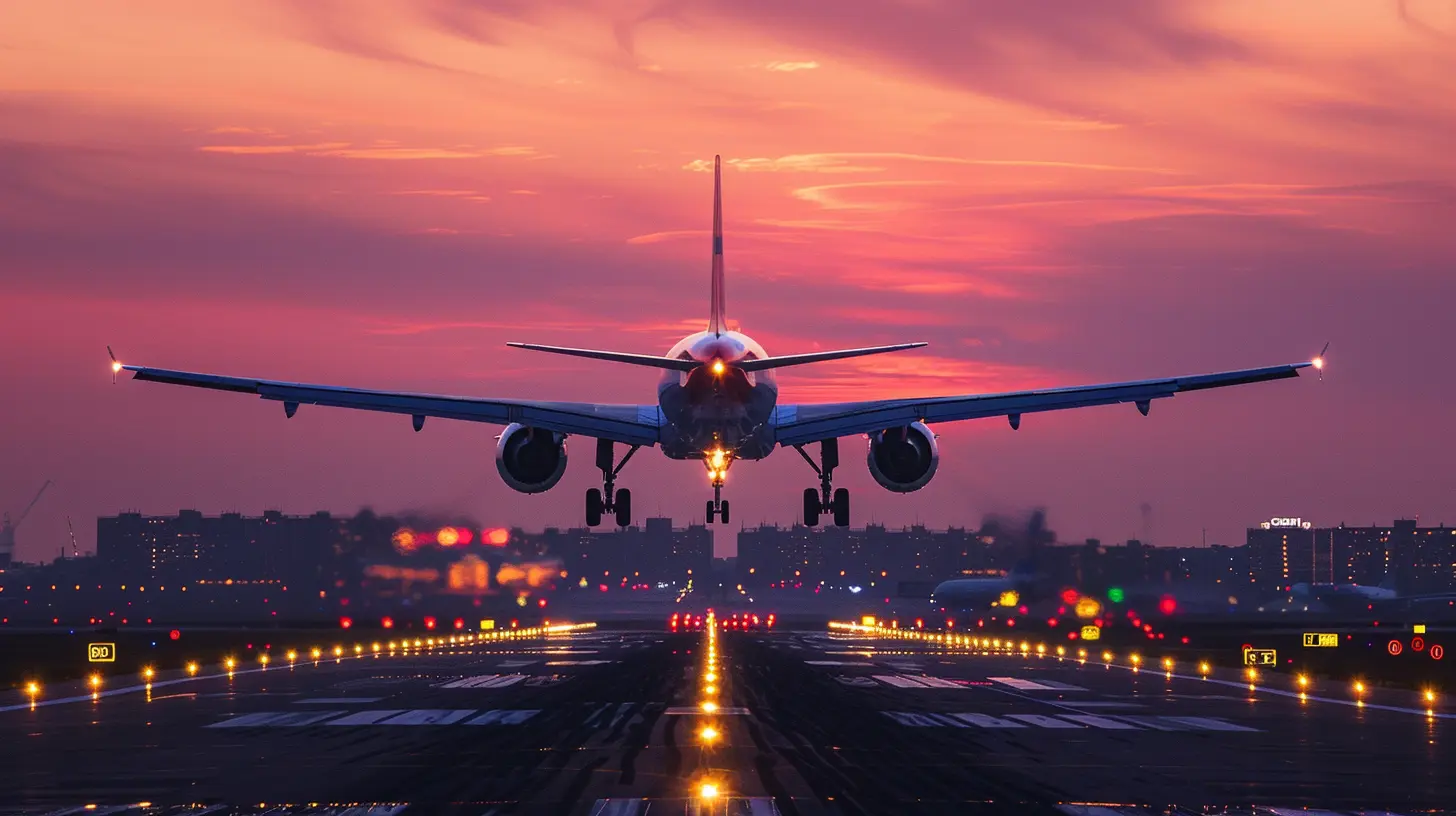From Takeoff to Touchdown: Managing Long Haul Time Zones
17 September 2025
Ever stepped off a long-haul flight feeling like a zombie? You left one time zone, crossed a dozen others, and landed in a place where your body has absolutely no idea what time it is. Welcome to the world of jet lag!
Long-haul flights are thrilling—new adventures, exotic locations, and a fresh stamp on your passport. But the time zone shift? That’s where the battle begins. Managing long-haul time zones can mean the difference between hitting the ground running and curling up in a hotel bed at 3 PM.
So, how do you trick your body into adapting faster? Let’s dive into some game-changing hacks for surviving those monster flights and arriving at your destination feeling like a superstar rather than a sleep-deprived mess. 
The Science of Jet Lag (AKA Why You Feel Like a Walking Zombie)
Before we get into the solutions, let’s talk about why time zone hopping wreaks havoc on your body.Your body operates on something called circadian rhythm—a fancy term for your internal clock. This clock tells you when to sleep, wake up, and even when to be hungry. When you suddenly jump across time zones, your internal clock doesn’t get the memo. The result? Fatigue, brain fog, digestive issues, and feeling like you’ve been hit by a truck.
Jet lag is the ultimate travel buzzkill. But don’t worry—there are ways to outsmart it. 
Pre-Flight Prep: Start Adjusting Before You Even Board
1. Tweak Your Sleep Schedule in Advance
Your battle against jet lag begins before you even leave home. A few days before your flight, start shifting your sleep and wake times closer to your destination’s time zone. Heading east? Go to bed earlier. Flying west? Stay up a little later. It won’t completely eliminate jet lag, but it’ll make the transition much smoother.2. Hydration is Your Best Friend
Airplane cabins are basically high-altitude deserts, sucking the moisture right out of you. Dehydration makes jet lag worse, so start drinking extra water before you even set foot on the plane. And no, coffee and wine don’t count—both actually dehydrate you. Sorry.3. Book Smart: Flight Timing Matters
If you can, book a flight that lands in the afternoon or evening rather than the morning. That way, you’ll have a better chance of staying awake until local bedtime instead of struggling to function all day.
Surviving the Flight: Beat Jet Lag at 30,000 Feet
4. Set Your Watch to Destination Time
The moment you board the plane, switch your phone, watch, and mindset to your destination’s time zone. Start thinking in that time zone—it’s a psychological trick that actually works.5. Eat Like You’re Already There
Your body’s internal clock isn’t just about sleep; it’s also tied to meals. Start adjusting your eating schedule mid-flight to match your destination’s meal times. This can help your body sync up faster when you land.6. Move Around—the Seatbelt Sign Isn’t Your Excuse
Sitting still for 10+ hours? Terrible idea. Get up, stretch, walk up and down the aisle (without annoying the flight attendants). Moving helps improve circulation, keeps your body from turning into a stiff block of concrete, and reduces the sluggishness that makes jet lag feel worse.7. Nap Strategically (But Not Too Much)
A short power nap? Great. A five-hour sleep session mid-flight? Bad life choice. If you nap too long, you’ll throw off your sleep schedule even further. Keep it brief—20-30 minutes max.
Post-Flight Tricks: Adjusting After Landing
8. Soak Up the Sunlight
This is the most powerful tool for resetting your internal clock. Daylight tells your body, "Hey, this is morning, time to wake up!" Spend as much time outside as possible after landing, especially in the early morning hours if you arrive during the day. It helps your body adjust way faster.9. Resist the Nap Temptation
I know, I know. You just got to your hotel, and that comfy bed is calling your name. But if you nap too early or for too long, you’re doomed. Try to stay awake until at least 8 or 9 PM local time to reset your clock properly.10. Melatonin: The Secret Weapon
Melatonin is a natural hormone that helps regulate sleep. Taking a small dose (around 0.5–3 mg) a couple of hours before bedtime in your new time zone can help you fall asleep faster. Just don’t overdo it—more melatonin doesn’t mean better sleep.11. Caffeine: Use It Wisely
Coffee is great, but mistiming it can backfire. Avoid caffeine at least six hours before bedtime in your new time zone. Otherwise, you might end up wide-eyed and staring at the ceiling at 2 AM.Crazy Time Zone Stories That Will Make You Laugh
Managing time zones isn’t always a science—it can also be downright hilarious.- The Accidental Time Traveler: A traveler booked a flight from Los Angeles to Sydney, but thanks to the time difference, they "lost" an entire day. Their friends joked that they entered a time warp.
- Missed Meetings Mayhem: Someone once scheduled a work Zoom call while on vacation in Tokyo, completely forgetting about the 13-hour time difference. They logged in… at 3 AM.
- Date Night Disaster: One poor soul planned a romantic dinner while traveling, but forgot to adjust for the time change. They showed up to the restaurant a full 24 hours early. Whoops.
The moral of the story? Always double-check what day and time it actually is!
Bonus: Destination-Specific Time Zone Survival Tips
Different destinations come with different challenges.- Europe: The time difference from the U.S. isn't too drastic, but red-eye flights are common. Try to sleep on the plane to hit the ground running.
- Asia: Huge time swings make adjustment tougher. Staying awake during the first day is key, no matter how tired you are.
- Australia: If you're coming from the U.S., you’ll probably “lose” a day. Accept it and plan accordingly.
- South America: Not a major time shift for North Americans, but flights are long—hydration and movement are crucial.
Final Thoughts: Time Zones Don’t Have to Ruin Your Trip
Jet lag is annoying, but it’s not unbeatable. With a little planning, smart sleep habits, and daylight exposure, you can trick your body into adjusting faster.Long-haul flights should be about the adventure, not the exhaustion. So prep ahead, stay active, resist those early naps, and embrace the chaos of time zone changes like a pro.
After all, what’s a little sleep disruption compared to the thrill of stepping into a brand-new corner of the world?
all images in this post were generated using AI tools
Category:
Long Haul FlightsAuthor:

Winona Newman
Discussion
rate this article
1 comments
Quincy McGee
Jet lag? More like jet giggle! Embrace the adventure of time travel (with snacks, of course). From munching on mystery airplane meals to mastering sleep on a cloud, it’s all part of the fun. After all, it’s just another day in the sky!
September 20, 2025 at 3:38 PM

Winona Newman
Love your playful take on jet lag! Embracing the adventure definitely makes long-haul flights more enjoyable. Snacks and a sense of humor are essential!


